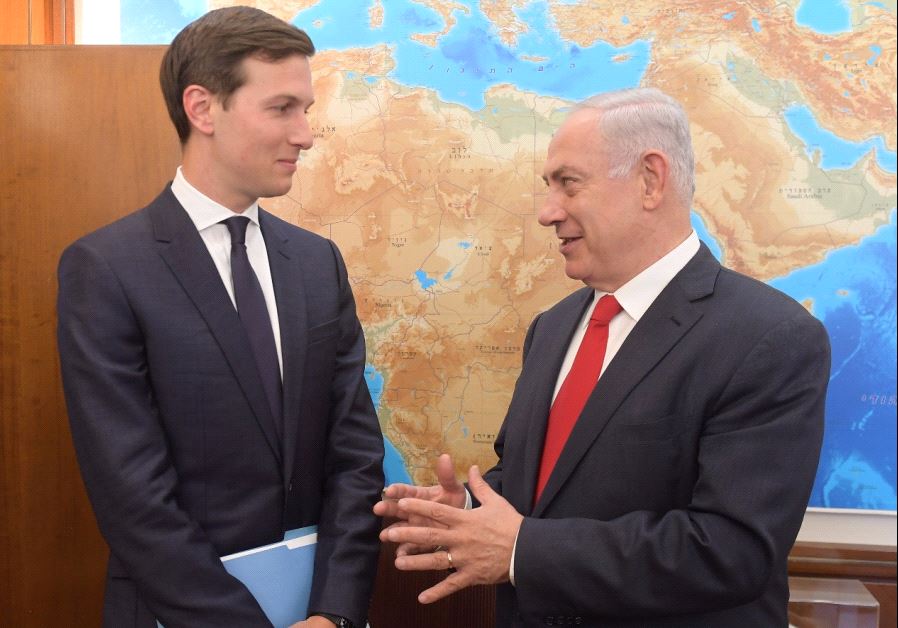Kushner rejects ‘history lessons’ while still reliving them
Jared Kushner may be confounded by Israeli-Palestinian history, but the events of July may have shown him this history is inescapable.
 Jared Kushner meets Prime Minister Benjamin Netanyahu, June 21 2017.(photo credit: AMOS BEN GERSHOM, GPO)
Jared Kushner meets Prime Minister Benjamin Netanyahu, June 21 2017.(photo credit: AMOS BEN GERSHOM, GPO)